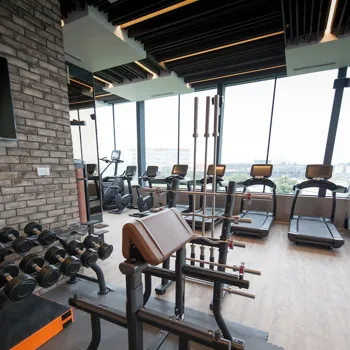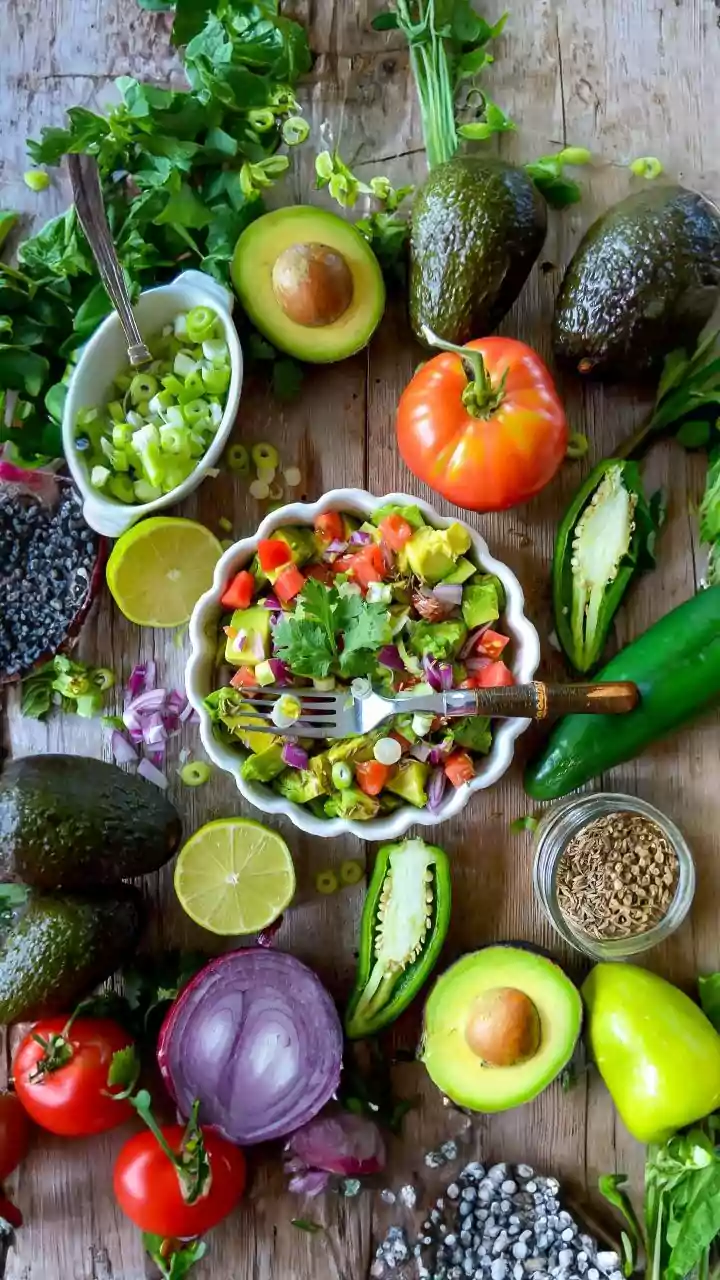Discover the truth behind weight loss myths! Uncover the facts to achieve a healthier you. Read on for debunked myths!
Weight loss. The eternal quest! It seems everyone is trying to shed a few kilos, especially
with wedding season around the corner or that Goa trip planned with friends. But amidst all the genuine advice, there's a lot of misinformation floating around, often disguised as common knowledge.
Believing these myths can actually hinder your progress and leave you feeling frustrated and demotivated. So, let’s debunk some common ideas about weight loss and pave the path to a healthier, happier you.
Drastically cutting calories harms weight loss progress
This is perhaps the most dangerous and pervasive myth of them all! The idea that drastically cutting your calorie intake will lead to rapid weight loss is completely misguided. While you might initially see a drop on the scale, it's mostly water weight and muscle loss.
The moment you start eating normally, the weight comes back, often with extra baggage. More importantly, severe calorie restriction can severely damage your metabolism, making it harder to lose weight in the long run. Your body goes into "survival mode," hoarding fat and burning muscle for energy.
Starving messes with your hunger hormones, causing cravings and uncontrollable binges which ruins every progress that's made. Think of your body as a car. It needs fuel to run efficiently. Deprive it of fuel, and it sputters and breaks down.
Instead of starving, focus on eating balanced meals that will keep you full and satisfied and avoid junk food.
Fuel your body with nutritious foods for sustainable weight loss
The key is to fuel your body with nutritious foods like fruits, vegetables, whole grains, and lean proteins. These foods provide sustained energy and keep you feeling full for longer, reducing the urge to snack on unhealthy options.
So ditch the crash diets and embrace a sustainable, healthy eating plan. Remember, weight loss is a marathon, not a sprint. Consistency and patience are your best friends.
Nourishing your body instead of depriving it will not only help you lose weight but also improve your overall health and well-being. Also, remember to listen to your body's hunger cues. Eat when you're hungry, and stop when you're full.
Pay attention to the signals your body sends you, and you'll be better able to manage your weight naturally. The next time you are planning a trip, don't restrict your calories. Instead, focus on making healthy choices while enjoying the food around you.
Cardio alone not enough for weight loss; include strength training for muscle mass
Cardio, like running, cycling, or swimming, is fantastic for your heart health and burns calories. However, it's not the only piece of the weight loss puzzle. Relying solely on cardio can lead to muscle loss, which slows down your metabolism. Think of your metabolism as your body's engine.

Muscle mass is like the engine's size. The bigger the engine (more muscle), the more calories you burn at rest making you lose more weight. Incorporating strength training into your routine is essential for building and maintaining muscle mass.
Strength training not only helps you burn more calories but also improves your body composition, making you look leaner and more toned.
Balance cardio and strength training, include various exercises, no fancy gym needed
So, aim for a combination of cardio and strength training. Include exercises like squats, lunges, push-ups, and weightlifting in your workout routine. You don't need a fancy gym membership to get started. There are plenty of bodyweight exercises you can do at home.

Balance increases, flexibility increases too which in turn keeps you healthy. Plus, strength training can improve your posture, reduce your risk of injuries, and even boost your confidence. It’s okay to take breaks in between your workout but don't give up. Remember consistency is key.
Always stretch after your workout and give your body enough time to rest.
Beware of deceptive labels on low-fat products
Be warned! These labels can be deceptive. Often, when manufacturers remove fat, they add sugar, salt, or artificial sweeteners to compensate for the lost flavor. These additives can be just as unhealthy, if not more, than the fat they removed.
Always read the nutrition labels carefully before buying "fat-free" or "diet" products. Pay attention to the serving size, total calories, sugar content, and the list of ingredients. A better approach is to focus on eating whole, unprocessed foods.
Nutrient-rich foods aid weight loss and boost health; cook at home for control and enjoyment
These foods are naturally low in calories and packed with nutrients. Fruits, vegetables, whole grains, lean protein, and healthy fats should form the foundation of your diet. They not only help you lose weight but also provide essential vitamins and minerals for optimal health.
Don't let the "fat-free" or "diet" labels fool you. Focus on eating real, wholesome foods and your body will thank you. Preparing food at home rather than ordering is a great way to control what you eat.
Cooking at home with family or friends can be fun and you can control the ingredients that's going in your dish.
Eating healthy matters more than timing for weight control
The truth is, it's not when you eat, but what you eat and how much you eat that matters. It is okay to eat at night if hungry but eating healthy snacks than junks is important. Consuming excess calories at any time of day will lead to weight gain.
If you're consistently eating more calories than you burn, whether it's at 10 AM or 10 PM, you'll gain weight.
Late-night snacking myth: choose healthy snacks to avoid weight gain
The reason this myth persists is that people often snack on unhealthy foods late at night, like chips, cookies, or ice cream. These foods are high in calories and low in nutrients, contributing to weight gain.
If you're hungry late at night, choose a healthy snack like a piece of fruit, a handful of nuts, or a small bowl of yogurt. Make sure to keep your calorie intake in check, and you don't have anything to worry about.
It's all about creating a calorie deficit, meaning you burn more calories than you consume, regardless of the time of day.
Carbs are essential for energy; choose wisely
Carbohydrates. They've gotten a bad reputation, but they're not the enemy. Eliminating carbs entirely is not only unsustainable but also unnecessary. Carbs are your body's primary source of energy. Cutting them out completely can lead to fatigue, brain fog, and irritability.
Also, most people feel lethargic if they avoid all carbs which in turn affects their ability to workout. Your body will crave carbs, leading to binge eating. The key is to choose the right type of carbohydrates.
Focus on whole grains for sustained energy, avoid refined carbs
Focus on complex carbohydrates like whole grains, fruits, and vegetables. These carbs are digested slowly, providing sustained energy and keeping you feeling full for longer. Avoid refined carbohydrates like white bread, pastries, and sugary drinks.
These carbs are quickly digested, causing a spike in blood sugar levels and leading to cravings and weight gain. Carbs like roti and rice are staples for Indians. You don't have to avoid it completely. Consume it in moderation for healthy balanced diet.
It will also help you stay happy during the weight loss journey.
Sweating doesn't equal burning fat; it cools you down
Sorry to burst your bubble, but sweating doesn't necessarily mean you're burning more fat. Sweat is simply your body's way of cooling down. You sweat more when you're hot, whether it's from exercise, the weather, or even spicy food!
The amount you sweat depends on various factors, including your genetics, fitness level, and the intensity of your workout. Someone who sweats a lot may not necessarily be burning more fat than someone who sweats less.
Track calorie intake, weight, body composition for fat loss progress. Hydrate, exercise smartly
The best way to gauge your fat loss progress is by tracking your calorie intake, monitoring your weight, and measuring your body composition. Don't rely on the amount you sweat as an indicator of your workout's effectiveness.

Stay hydrated by drinking plenty of water, and focus on doing exercises that challenge your body. The most important factor to sweating is to stay hydrated and drinking lots of water. Don't fall for the myth that you have to sweat buckets to lose weight.
Instead, focus on a balanced approach to health and fitness.
AI Generated Content. Glance/InMobi shall have no liability for the content





















